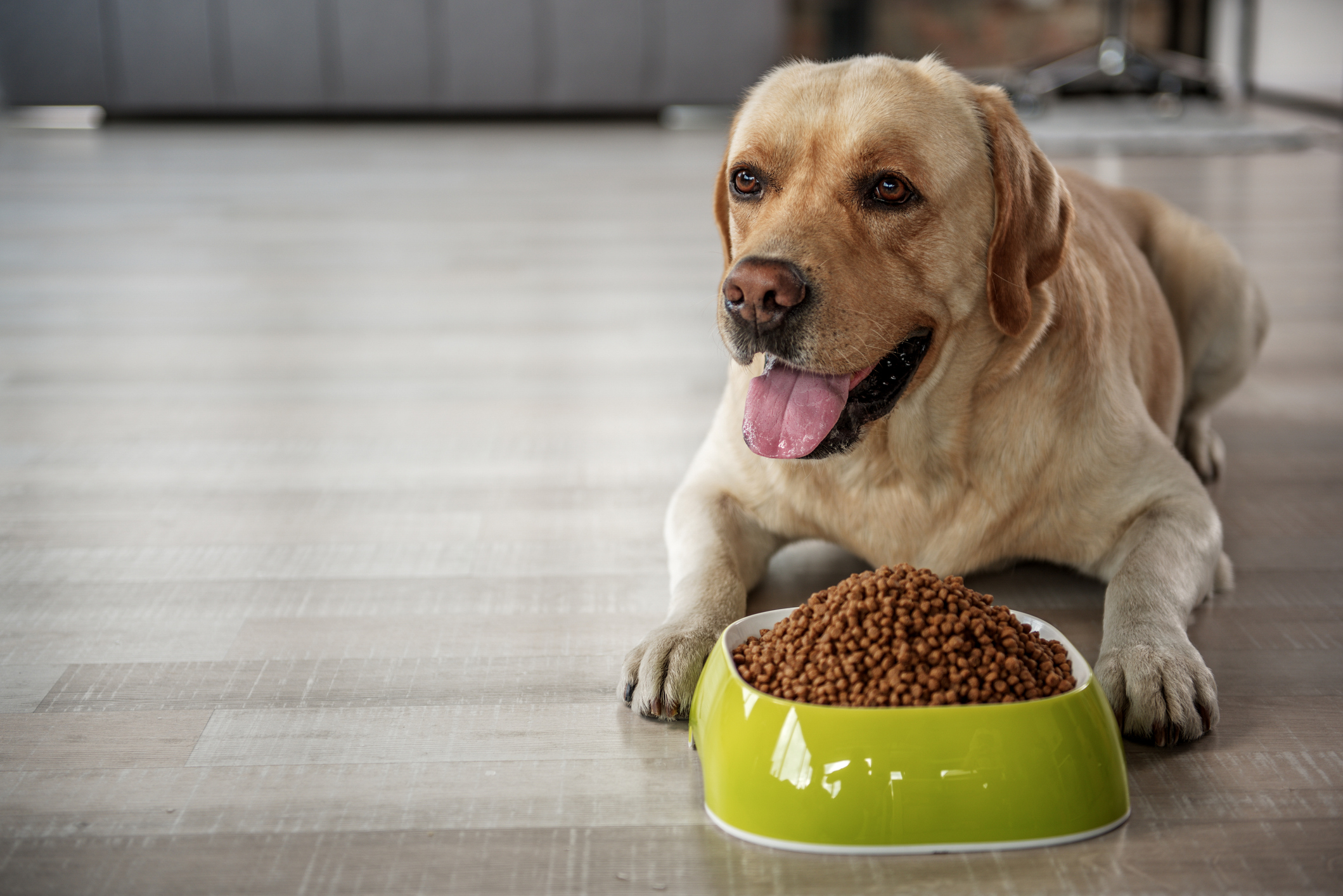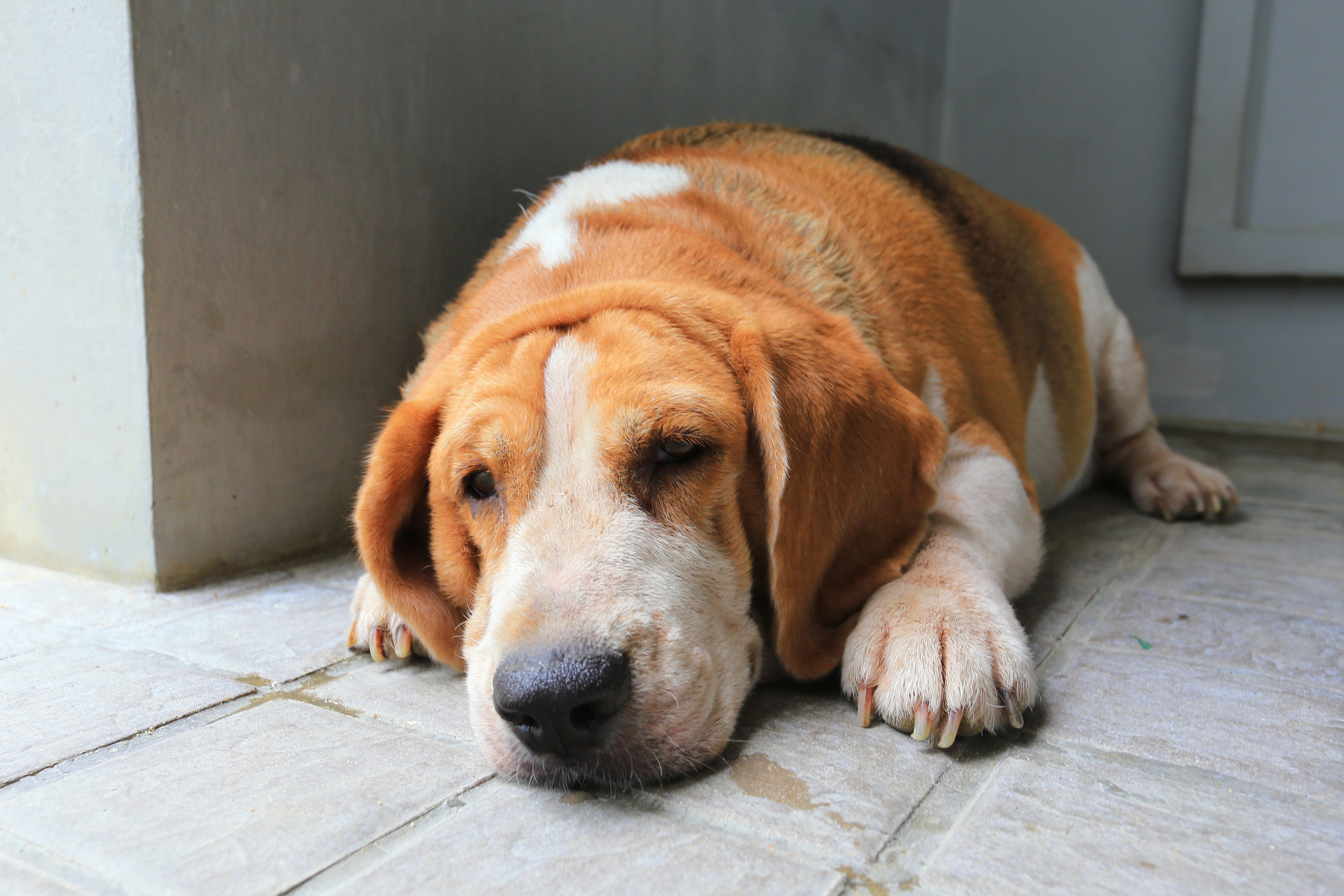
This Dangerous Health Problem Happens to Dogs on a Fatty Diet
You’re cooking a big meal for your family filled with indulgent foods like a roasted turkey, buttered biscuits and decadent gravy. Your furry friend is underfoot in the kitchen, giving you their best puppy-dog eyes while they beg, and you cave. Giving your dog a healthy chunk of meat and flavorful skin can’t hurt, right?
Unfortunately, it’s these kinds of situations that might land dogs in the emergency veterinarian with a dangerous health problem. Many pet parents are unaware of an issue called pancreatitis—and how seemingly innocent gifts like the one above can cause it.
What is pancreatitis?
At the most basic level, pancreatitis is inflammation of the pancreas. Although it’s well-known that inflammation can be dangerous for dogs in the long term, the inflammation caused by this condition can be life-threatening, and it’s not always easy to spot when it occurs.
The pancreas releases enzymes that help your dog digest food. These enzymes are only supposed to activate when they reach the small intestine, where the bulk of digestion occurs. Unfortunately, if the pancreas becomes inflamed, enzymes are prematurely released from the organ and activated, which leads to the “digestion” of the pancreas and its surrounding tissues. This process can significantly damage the pancreas and other organs in the abdomen and is usually very painful for the suffering pet.
Without prompt medical treatment, pancreatitis can cause severe organ damage, internal bleeding and even death.
Pancreatitis can either be acute or chronic. Acute pancreatitis comes on suddenly, is usually severe and can be life-threatening if it’s not caught and inflammation spreads to the surrounding organs. Chronic pancreatitis develops slowly over time and is usually characterized by persistent, low-grade inflammation. Chronic pancreatitis may flare up on occasion, causing more severe symptoms.
But what exactly leads to inflammation of the pancreas? As it turns out, quite a few things could be to blame.
One of the most common causes of pancreatitis in dogs is a fatty diet. The condition could be brought on by feeding your pup a high-fat diet for their daily meals. It might also be brought on if your dog normally eats a low-fat diet and suddenly gets a large serving of fatty food (like being fed table scraps or rummaging through the garbage). Fatty diets raise the amount of fat present in the blood, which can cause pancreatic inflammation. This risk factor is highest in overweight and inactive dogs.

Other things can also cause pancreatic inflammation, including obesity, trauma to the pancreas, hypothyroidism, Cushing’s disease, certain medications and toxins.
Additionally, because the pancreas is responsible for producing insulin, diabetic dogs may be at a higher risk for pancreatitis. However, damage to the pancreas because of pancreatitis may also increase your dog’s risk of diabetes if they do not have the condition already.
Spotting and treating pancreatitis
Unfortunately, pancreatitis can look a lot like other, milder health problems in dogs because of their shared symptoms. The following symptoms are the most common:
- Hunched back or bowed posture
- Vomiting repeatedly
- Distended and painful abdomen
- Fever
- Diarrhea
- Lethargy
- Inappetence
The most telling symptoms are a painful belly and repeated vomiting. While your dog might vomit once after eating something that doesn’t agree with them, multiple bouts of vomiting in a short time period combined with pain in the abdomen are pretty sure signs of pancreatitis.

If you notice signs of pancreatitis in your dog, it’s very important that you seek veterinary help as soon as possible to ensure your pet’s comfort and safety. Severe cases of the condition may require testing, IV fluids and monitoring to allow the inflammation to go down.
After immediate treatment, your dog may need long-term management to prevent reoccurrence of the problem, which is often high. This generally includes feeding your pup small meals throughout the day, rather than one or two large ones. Your dog will also need to be put on a strict low-fat diet—and absolutely no table scraps should be given!
Dogs with severe or chronic pancreatitis may need to have their diet permanently altered—usually using a prescription ultra-low-fat food—to ensure their safety for the rest of their lives. In more mild cases, your dog may be able to return to their normal diet (if it is low enough in fat) after the condition has cleared.
Pancreatitis prevention
In many cases, pancreatitis is preventable by regulating your pup’s diet. These three things can go a long way in preventing pancreatic inflammation and the problems that come with it:
- No table scraps: Most dogs eat a diet with an appropriate amount of fat. However, this can cause problems if they suddenly find themselves with a high-fat meal or treat. For this reason, avoid feeding your dog any table scraps that are fatty, such as pieces of meat or foods with lots of butter.
- Feed a low-fat diet: Some store-bought pet foods have high levels of fat that could be detrimental to dogs who don’t move much. Discuss your pet food options with your vet to determine whether your dog needs to be fed something with lower levels of fat to reduce their risk for obesity and pancreatitis.
- Maintain their weight: Obese pets have a much higher risk for pancreatitis than active, lean pets. Ensure your pet maintains a healthy weight by exercising with them frequently and potentially switching them to a weight-loss diet.
Prevention is a much better approach to pancreatitis than life-long management of this painful condition. So, ignore the puppy-dog eyes and give your dog a low-fat treat, instead—it’s good for their health!


